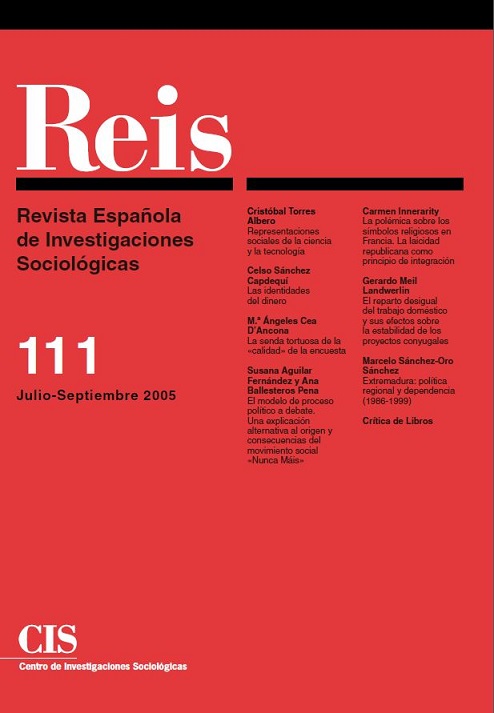El reparto desigual del trabajo doméstico y sus efectos sobre la estabilidad de los proyectos conyugales
DOI:
https://doi.org/10.5477/cis/reis.111.163Keywords:
Gender, Housework Division, Child Care, Marital Conflicts, Marital Satisfaction, DivorceAbstract
The characteristics of family change have given rise to the emergence of a «new conjugal pact» characterized by the negotiability of the terms of co-existence, both in the way it starts out, and in the way it develops and can eventually end. Based on a survey carried out in the Madrid Region in 2003 among so-called «new families», the article analyzes the potential effects of the unequal distribution of housework and childcare on marital adjustment and divorce risk. Applying logistic regression analysis, the reason behind the probabilities of thinking as well as speaking about ending the relationship is conditioned, among other variables, both by the terms of the distribution of housework among spouses and by satisfaction with those terms and the conflict´s frequency over them. The lower the inequality of the distribution of housework, the greater the satisfaction and the lower the conflicts over these topics, the greater is the satisfaction with current couple life and the lower the risk of ending the relationship.
Downloads
Downloads
Published
How to Cite
Issue
Section
License
Copyright (c) 2024 Revista Española de Investigaciones Sociológicas

This work is licensed under a Creative Commons Attribution-ShareAlike 4.0 International License.
Permite Compartir — copiar y redistribuir el material en cualquier medio o formato, Adaptar — remezclar, transformar y construir a partir del material para cualquier propósito, incluso comercialmente.








